A big thanks to Israel Ministry of Tourism for hosting our trip so we could provide this detailed review of our experience.
“[If] you can open a mouth, you can open a mind,” is a quote that stuck with me from Philip Rosenthal, the actor-writer-producer most known for the CBS sitcom Everybody Loves Raymond, though I discovered him on the Netflix series Somebody Feed Phil. RELATED: 12 Things in Travel You Need to Know Today
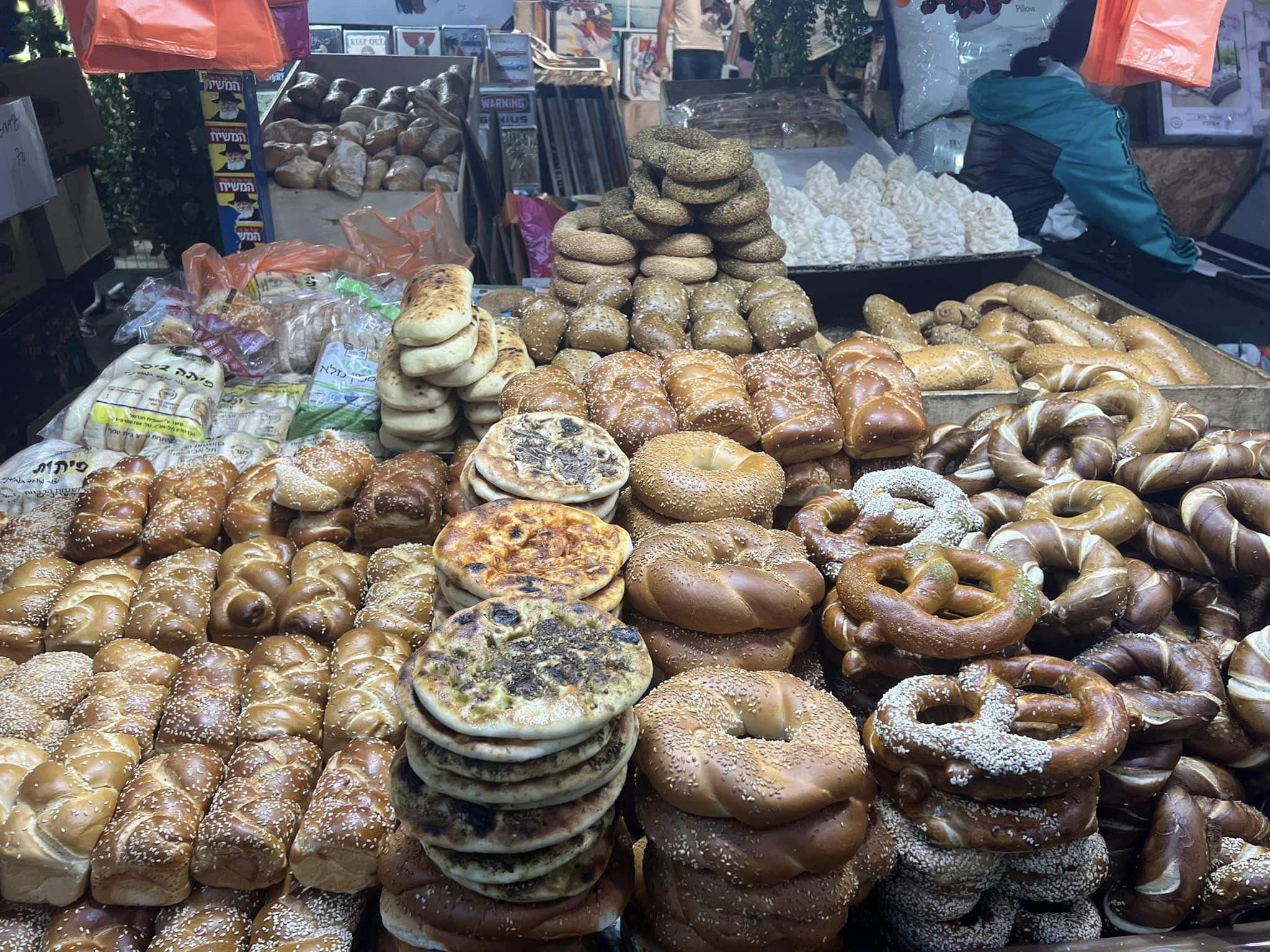
Delicious food not only has the power to bring us together but also to help us better understand each other. Often, we realize we have more in common than we have differences. Open your mind and heart to the culture of Israel through Middle Eastern and Mediterranean cuisine – strongly influenced by Asia, Africa, and Europe. While similar to North African countries like Morocco, Tunisia, and Egypt, as well as nearby Syria, Lebanon, and Jordan, Israel has a food culture all its own. Israel’s culinary traditions comprise foods and cooking methods that span 3000 years of history. Get to know Israel through eating and drinking.
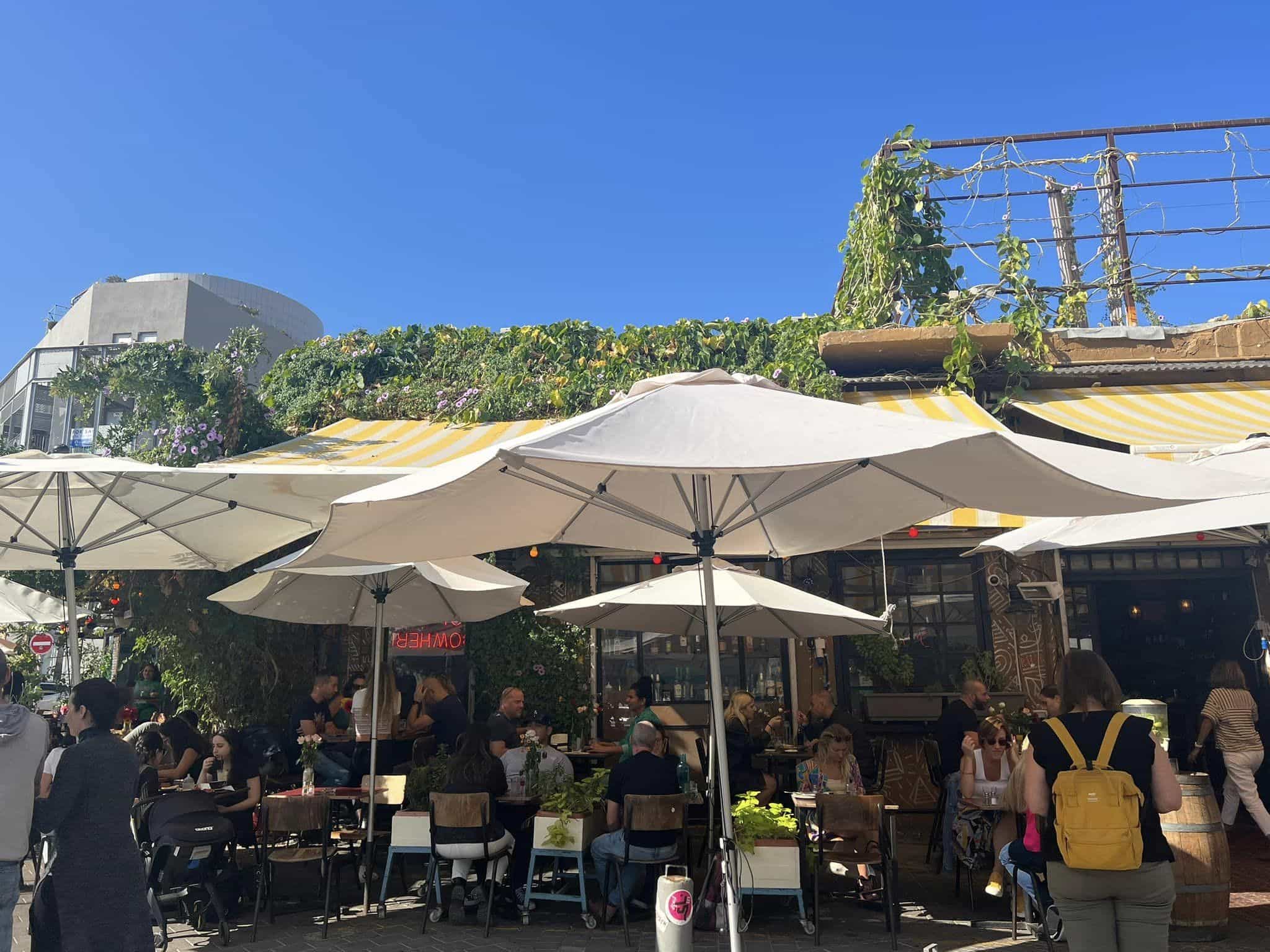
10 Culinary Experiences Not to Miss in Israel
Eat your way through the Carmel Market in Jaffa
Known locally as Shuk HaCarmel, Tel Aviv’s largest and busiest market is like an overdose of scents, sounds, colors, and people from all over the world, crammed in a few small streets filled with stalls of fresh meat, fruit, fish, and vegetables. Here we also found knockoff goods, clothing, jewelry, and many prepared food options.
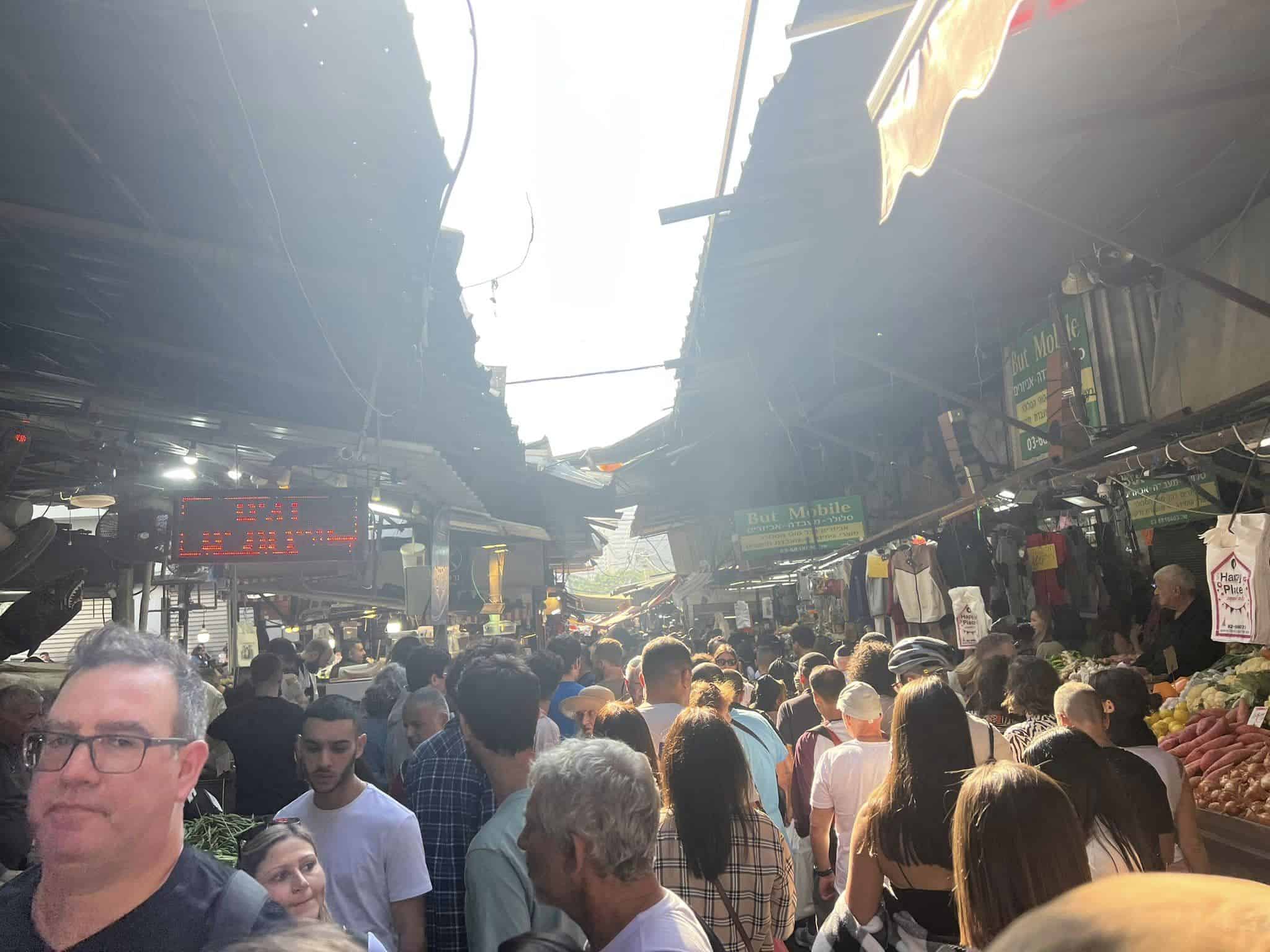
Weaving in and out of the packed market crowd, we gobbled down burikas in pita stuffed with tomato and egg, sampled spinach and cheese Turkish bourekas, sipped pomegranate juice, and tried raw sweet corn served on a stick. A happy singing food preparer captured my attention as he danced to his music while serving a phyllo stuffed roll with egg and tomato, while I watched an Iraqi man sell his famous fried spicy beef cigars. It was easy to admire vegetables here, many new to me like a long tapioca root, Willy Wonka-like cucumbers, and green beans the size of my forearm.
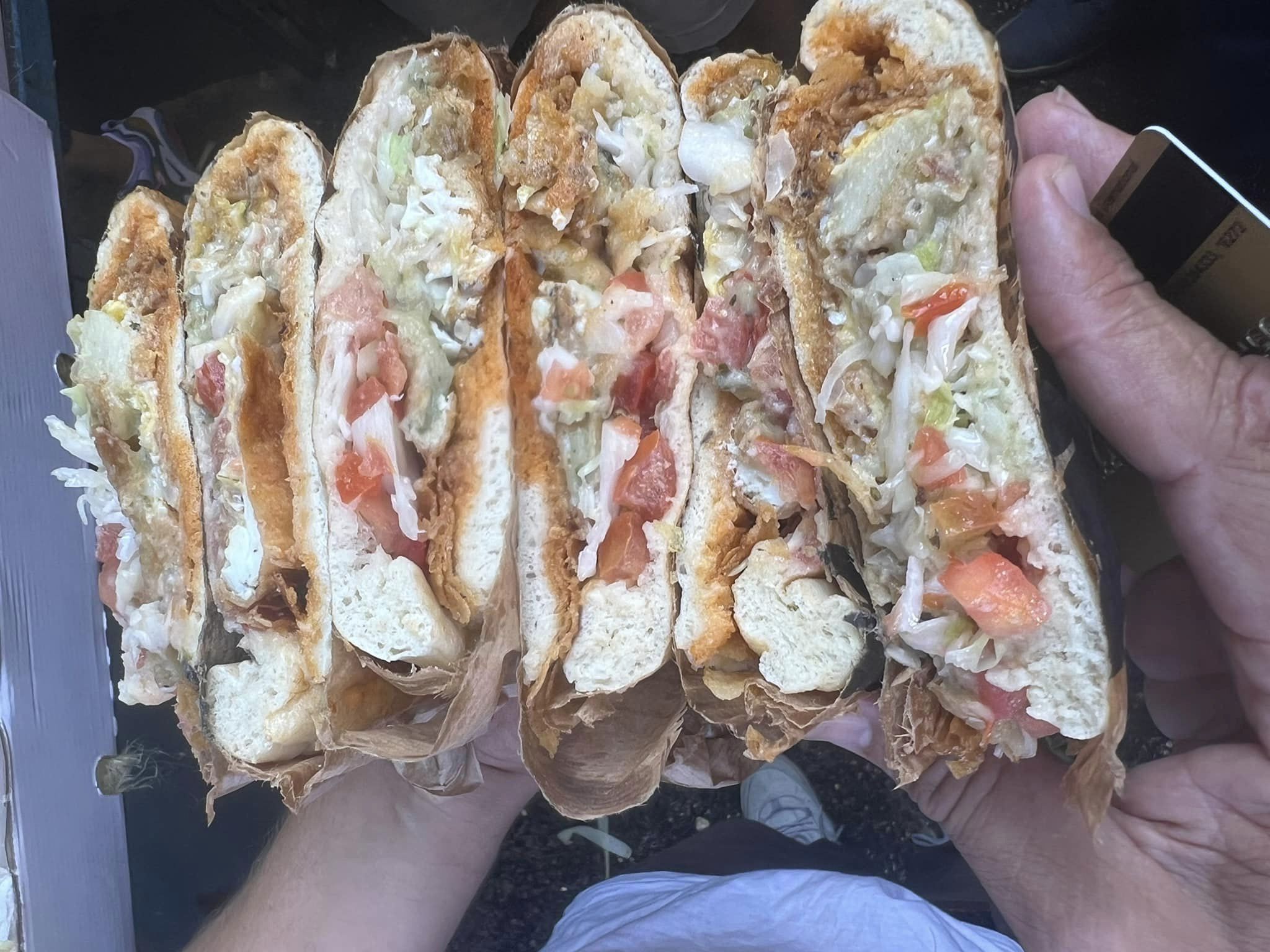
Try the Israeli staple – popular halva and Arab knafeh, a sweet spun pastry often layered with cheese and made with a sweet sauce and sometimes roses. Hummus is a must find while the Beer Bazaar sells over 70 different kinds of local Israeli craft beer – Goldstar and Macabe being the most ordered. Today, million-dollar apartments hug this center, built next to Bauhaus-style buildings by Jewish architects when they were ordered in the 1930s to stop working in Germany.
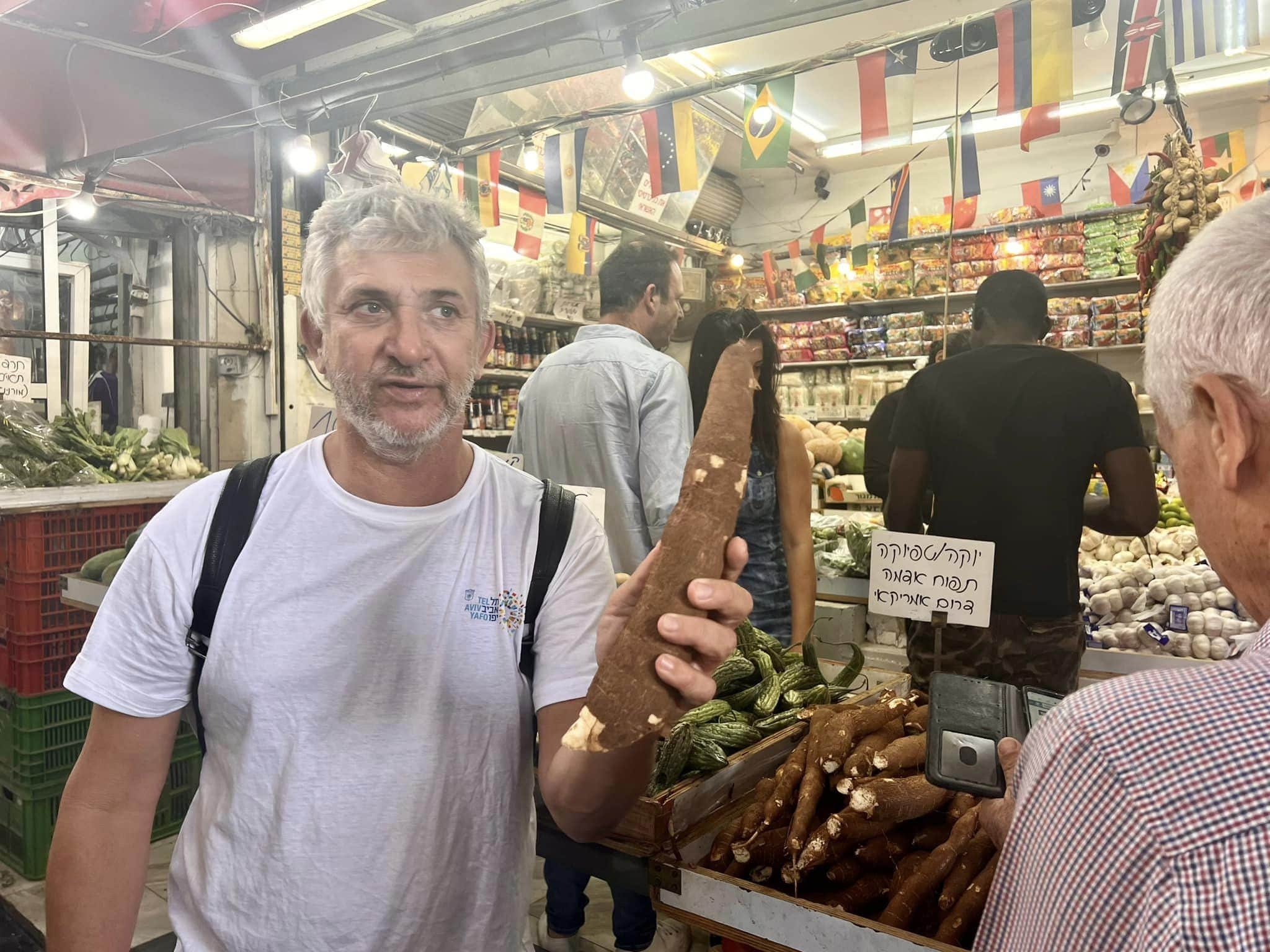
PRO TIP: Get to know the history of the Carmel Market area and sample a wide range of foods by booking a tour with Yuma Jack of WorldCity Tel Aviv Food Tours or email him at Yudja1@walla.com.
Explore the Old City Market in Jerusalem
In the old city of Jerusalem near the Wailing Wall, it’s easy to get lost in the narrow ancient lanes in the “suk,” Arabic for ‘market’. Today the city has made this area wheelchair accessible with ramps. Step back in time in the stone lanes to people watch and experience the Middle Eastern atmosphere, the bustle of daily life, now also packed with tourists. Besides haggling over souvenirs, local textiles, glassware, ceramics, religious items, and many other things to buy, this is a great area to sample the local street food.
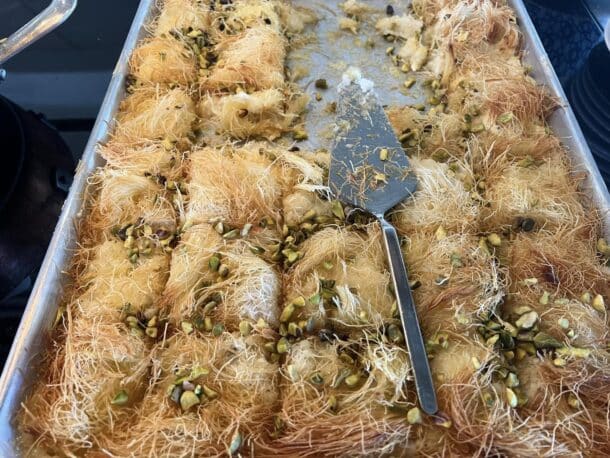
Sip freshly squeezed juice and eat falafel, hummus, or shawarma. Try halva, dates from Jericho, hummus from Arafat, and Knafeh from Gafaar. Take home colorful seasonings for around $1 a bag at Moakey Spices. Salted bricks stuffed with yogurt are sold to Bedouins here who use it to preserve since they don’t have refrigerators.
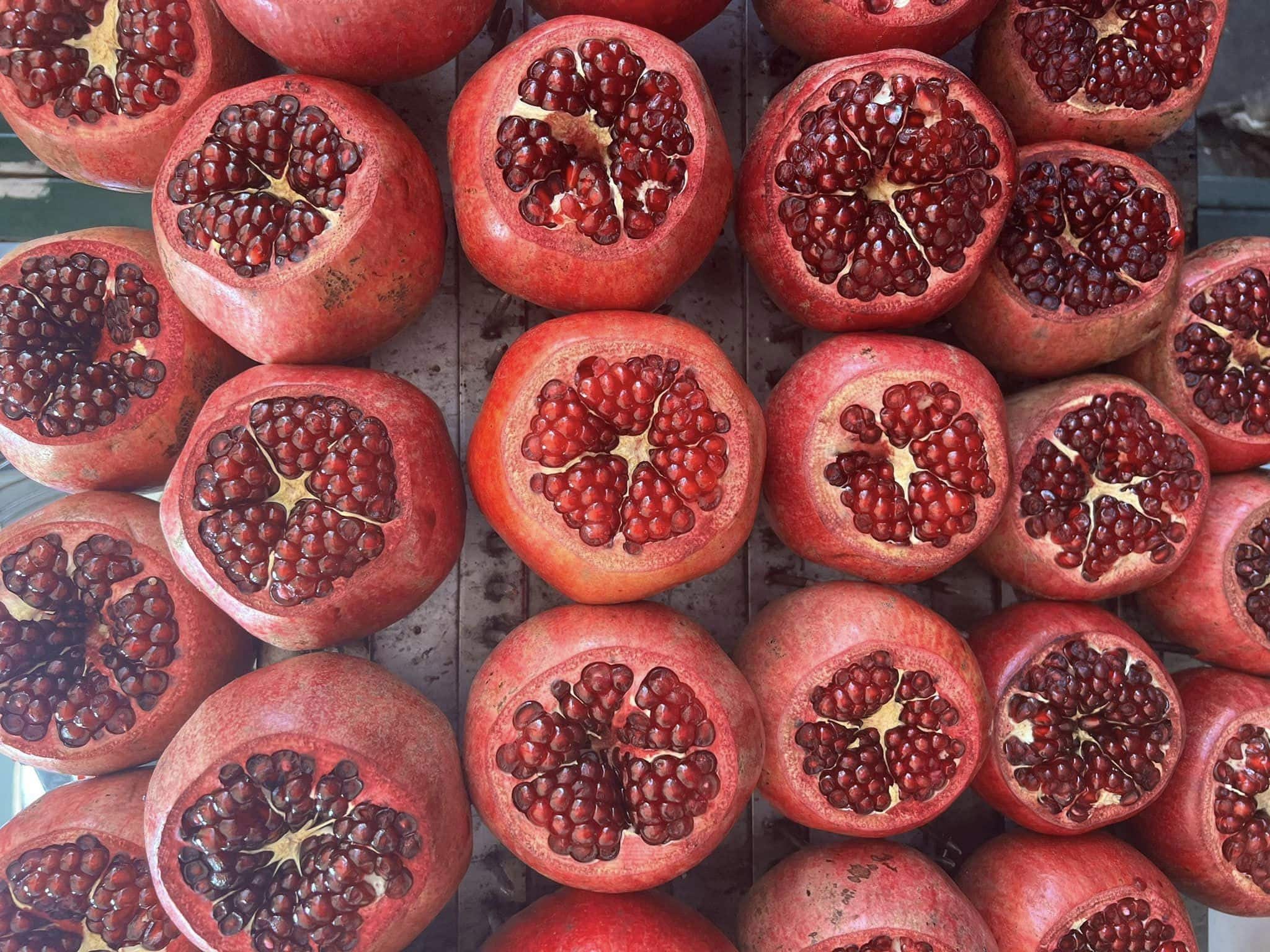
In the alleyway maze in the Jerusalem Muslim quarter, find the ancient Al Jebrini Tahini factory, churning out smooth creamy tahini with a smoky dry-roasted flavor, then hulling and stone grinding the sesame seeds from Ethiopia with a 300-year-old stone. Some tahini varieties are mixed with oil and black grape honey. Most tahini here is sold to restaurants for making hummus.
PRO TIP: Book the tahini factory experience and taste the magical seed.
“Break bread” with the Druze or Circassians in Upper Galilee
In the Upper Galilee (the northern part of Israel and north of the Sea of Galilee), there are 16-18 close-knit Druze villages comprised of a religious ethnic minority that originally came from Egypt thousands of years ago. Roughly 2% of the population in Israel, the Druze are Arab and speak Arabic. They believe in reincarnation – that a human soul is reborn into another body – and are forbidden to visit cemeteries. Almost all marry within their sect.
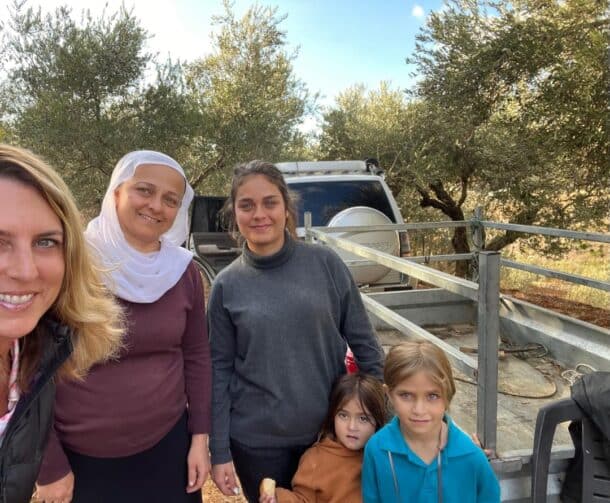
Get to know a Druze family by helping prepare a meal with them in their home. Lebneh, pita, and olives are year-round staples but overall a meal is seasonal based on what is grown in the garden. People eat stuffed grape leaves in the spring and often veggies cooked in yogurt or meat-filled pastries in yogurt sauce. After helping share responsibility for making the meal, we watched a grandmother rip to share long-hanging extra thin pita bread with our table. Then we ‘broke bread’ over thick bulgur wheat with tomato sauce, wild chicory topped with caramelized onions, tabbouleh, and a lamb and meat mix with tahini drizzled over.
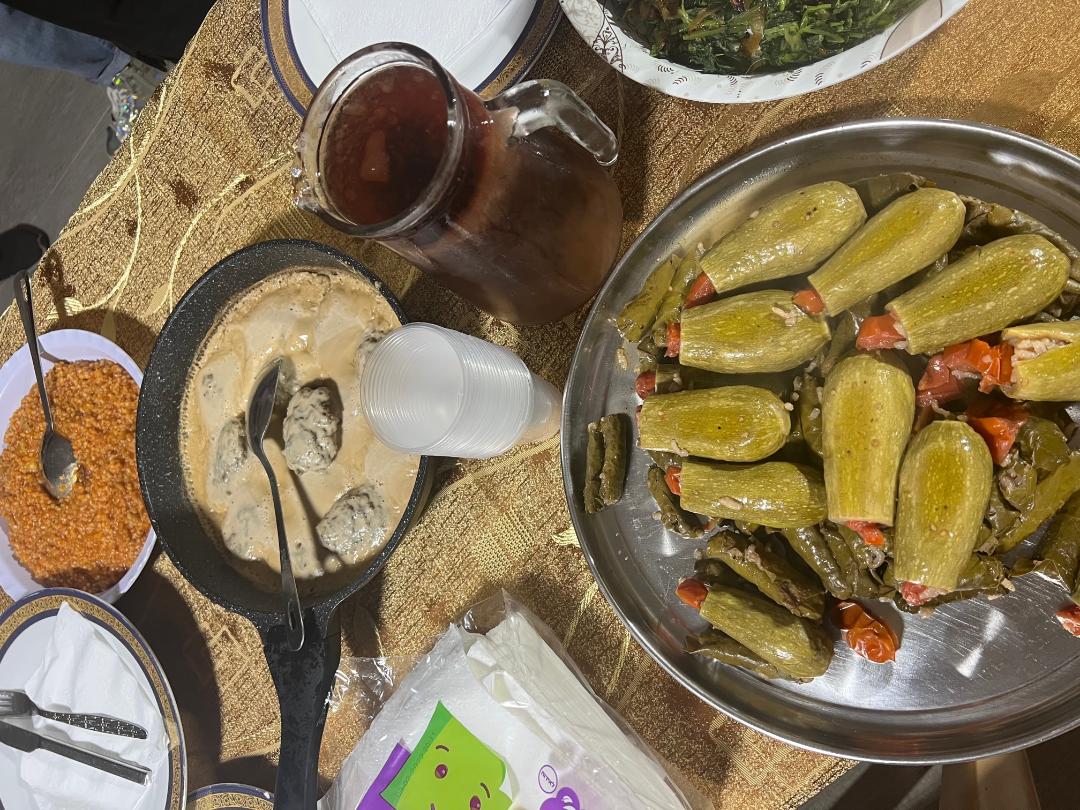
PRO TIP: Get to know a Druze or Circassian family in their home by cooking a meal and eating it together. Galileat, a company owned and run by Paul Nirens (paul@galileat.com) offers these special experiences with his Jewish, Arab, and Druze friends. After living in rural Galilee for over 30 years, he partners with people from the region to offer experiences like cooking and wild green foraging workshops, market tours, and culinary adventures.
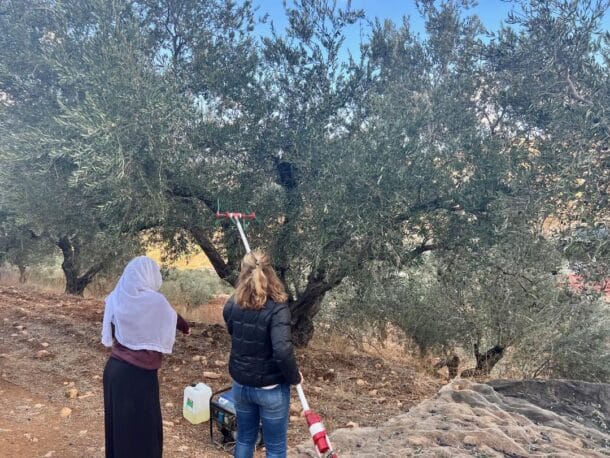
Lunch at Tosha Café Bakery across from the sea in Achziv
Just a year old in this location, Tosha’s eclectic outdoor café bakery faces the ocean and has a bar made of bicycles. Sit outside under the covered terrace with coffee and indulge in beautiful pastry stuffed with beetroot, spinach and cheese, pistachio, and more. Created by friends Shahaf Avraham and Tomer Swisa from northern Israel after working together in numerous leading restaurants in the country and interning in France, they decided to fulfill their shared dream, combining their two names to become Tosha.
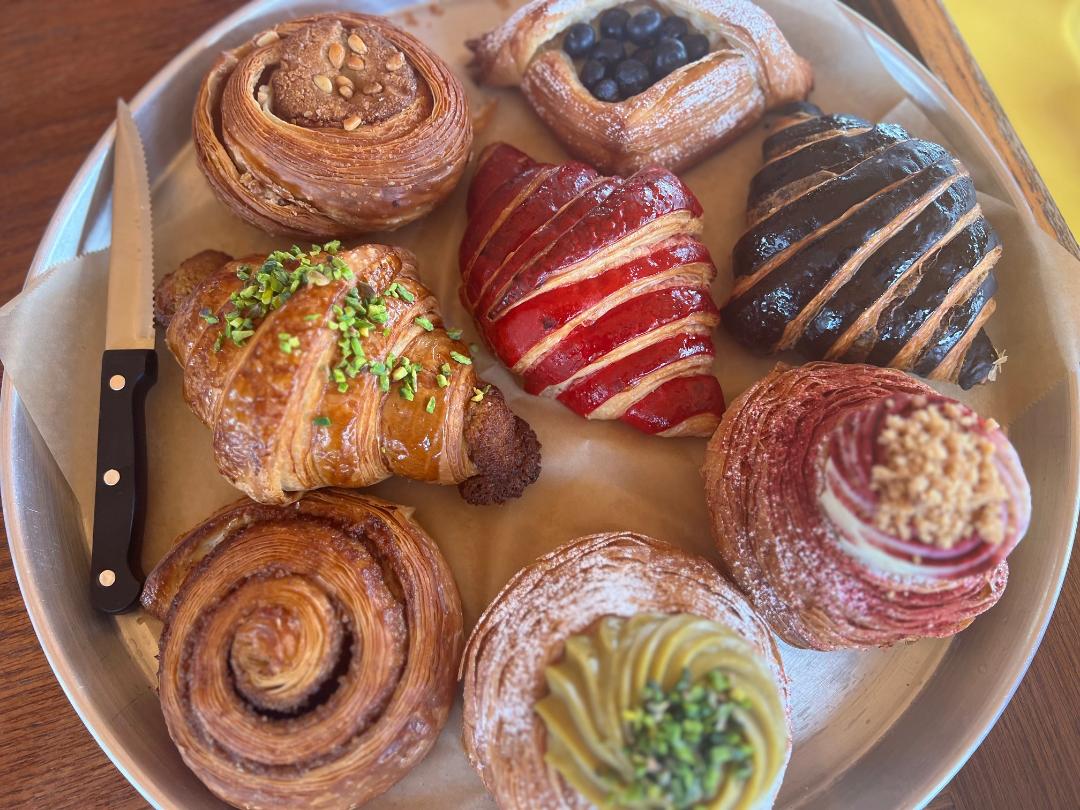
Besides sweet and savory croissants, yeast cakes and mousses, chocolate and cheesecakes, stay for a meal to savor zucchini pancakes, salads with goji berries, croissant sandwiches, and fried zucchini fritters. Many snacks are made from local vegetables and a small store sells deli products, Galilean wines, and flowers.
PRO TIP: Book a cake-making workshop or order the chef’s favorite dessert, the lemon tart.
Dine on the Sea of Galilee at Decks Restaurant
For a romantic casual dinner, try Decks in Tiberias. As we dined on this grand twinkly-lit pier deck floating over the surface of the water, the full moon shined across the sea over the Golan Heights in our direction. This is where Jesus presumably walked on water and calmed the sea.
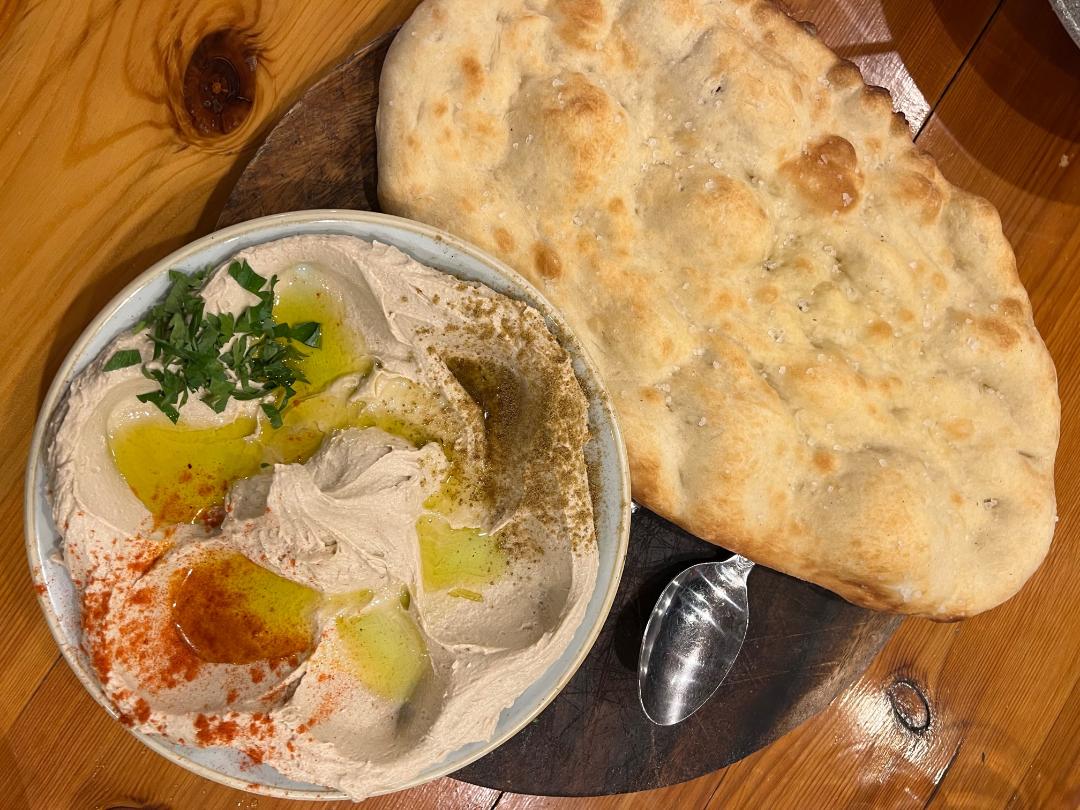
Admire several brick ovens where meat, poultry, and fish are barbecued in unique ways over citrus wood, olive wood, and American hickory for a memorable smokiness. Lamb and steak were cooked to perfection and arrived on a grand platter with grilled sweet potatoes and a bed of fries.
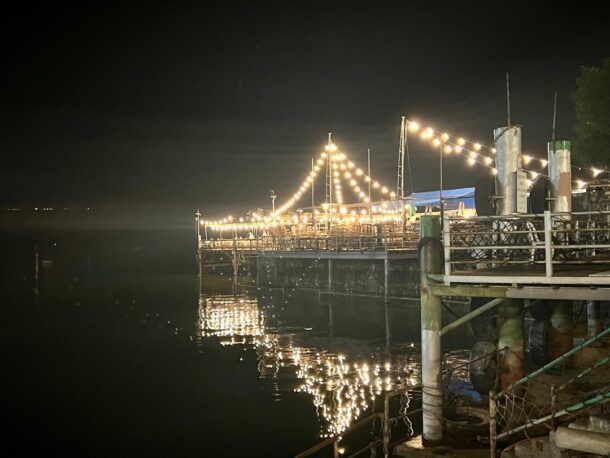
To start, order the hummus with a large soft warmed pita or gigantic fried onion bloom and pair it with an Israeli beer like Goldstar or a local Grenache wine. Ask for specialties that might not be on the menu like the boneless shoulder of lamb, moist salmon, and tuna cooked in a traditional charcoal oven brought from the Dalmatian coast, and Mediterranean tuna carpaccio freshly caught from the owner’s son. In summer the venue can accommodate up to 450 people.
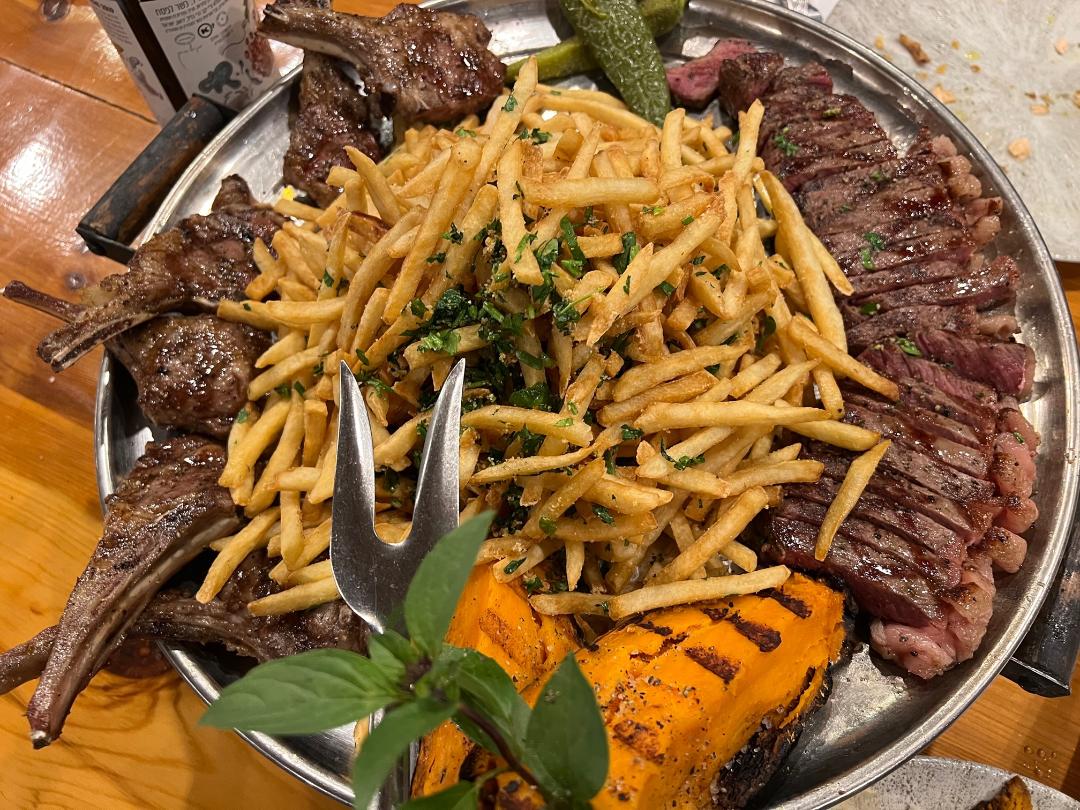
PRO TIP: Before or after dinner, book an evening jaunt on the sea/lake in an old wooden boat. We heard dinner comes with a voucher for one of the Lido Sailing Company’s daytime or evening party boats—a fun experience, with local partygoers sometimes dancing on the waters to Arabic and Israeli music.
Wine taste around Israel
In Israel, the big discussion around wine continues to revolve around the challenges of making kosher wine, that is wine made according to Jewish dietary laws and, according to the Orthodox Union, “under strict Orthodox Rabbinic supervision.” During the pandemic, all wineries in Israel benefited as wine sales soared because Israelis couldn’t travel so they could leave the cities mask-less and enjoy drinking wine outdoors in vineyard locations.
In 2020 the Judean wine region was recognized as the first wine Appellation of Origin (AO) in Israel registered as “Judea” consisting of Judean Hills and the Judean Foothills with over 40 wineries. In the Judean Hills about 25 minutes from Jerusalem, spend an afternoon at Flam Winery with a cheese spread and a bottle of rose or their award-winning Noble (blend of Cabernet Sauvignon, Merlot, Syrah, and Petit Verdot) on their outdoor patio surrounded by vineyards.
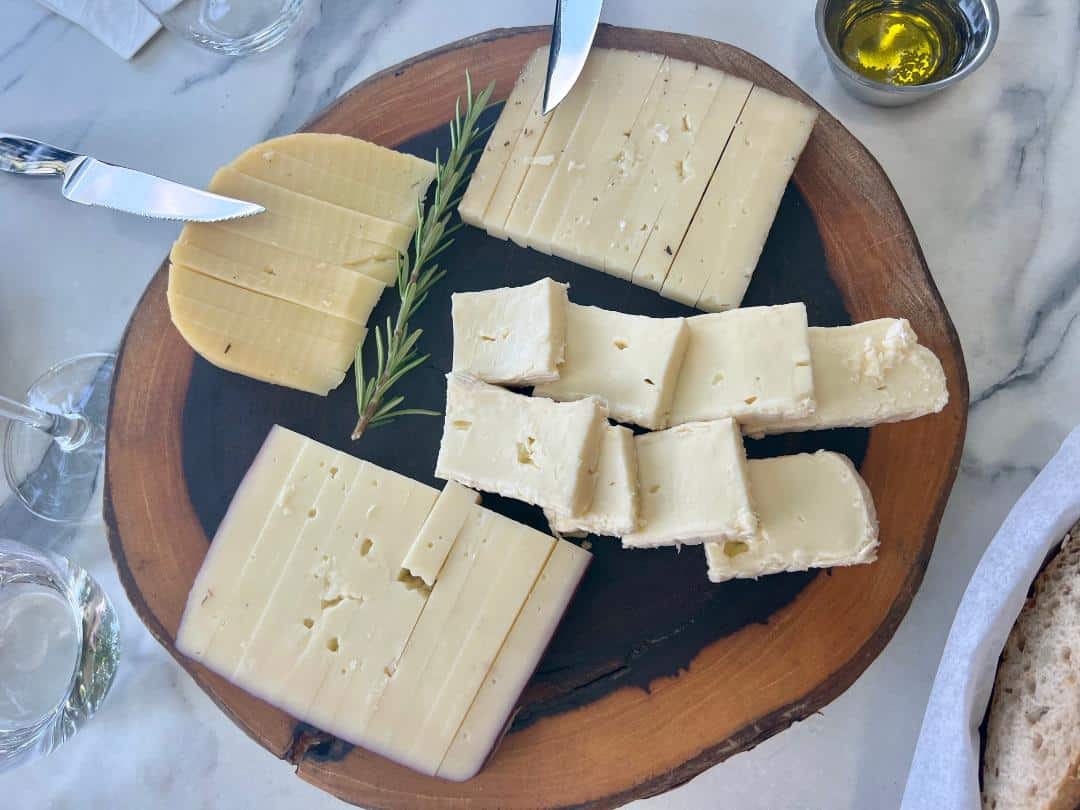
Started 25 years ago when no small wine estates existed in Israel, the family wanted to become growers and express the terroir. One of the brothers studied in Tuscany in the 90s during the Super Tuscan revolution and shared how Syrah in Israel is spicier due to the herbs in the area. Flam Winery makes kosher wines and they separate the visitor center (wine-tasting area) from their winery.
On Ofir Farm in Alon HaGalil, a vineyard and wine tasting come with honey tasting on this third-generation agricultural farm with apiary and beekeeping. Honey lovers can sample 9 varieties, such as honey from avocado, jujube, and the carob tree. For over 20 years they have been making wine from grapes grown in their vineyards, such as Sangiovese, Petit Syrah, Shiraz Marselan, and Roussanne. The winery produces around 10,000 bottles a year. The visitor center is located in a handmade wooden hut built of oak and chestnut beams thanks to an American who sent wood from Appalachia. Wine taste here with cheese and bread, picnic baskets, and guided tours.
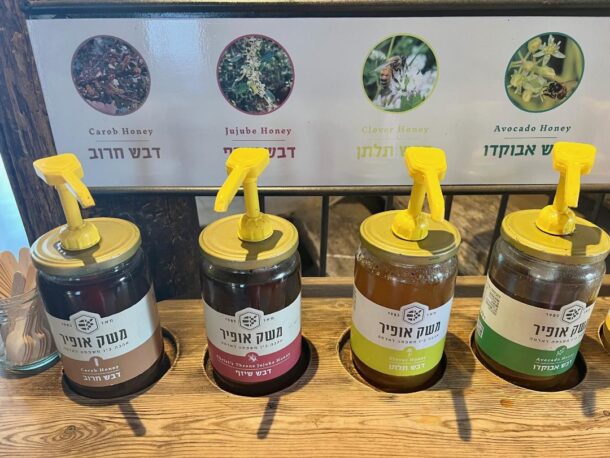
Boutique family-owned Stern Winery started as a passion project for vivacious Brazilian-born Johnny Stern after leaving his job and now the winery makes 30,000 wines both blended and varietal with grapes from Golan Heights and the Upper Galilee. The winery produces red wines and in 2012 began to produce its own white wine. The 2016 Cab Franc won the Fingerlakes International wine competition in New York. Situated on the mountain peaks at Kibbutz Tuval, guests can come for a tour, wine tasting, or book a dinner party with Stern wines.
Kishor Winery makes wine on a kibbutz where half of its members are special needs. This non-profit organization creates a community where all feel loved and valued. The philosophy here is that people come because they want to live among people with special needs and share a life together. Located in Kishorit on the Upper Western Galilee mountain range, the unique climate of the area characterized by big day and night temperature differences combined with rocky terrain makes an ideal environment for the long and slow ripening of the fruit which gives the wine its color, aroma, and special taste. Sample and purchase wines at the visitor center or if you book in advance, eat breakfast or lunch with cheeses, bread, cookies, cakes, and fresh pastries made by members of the community. L’chaim to inclusivity!
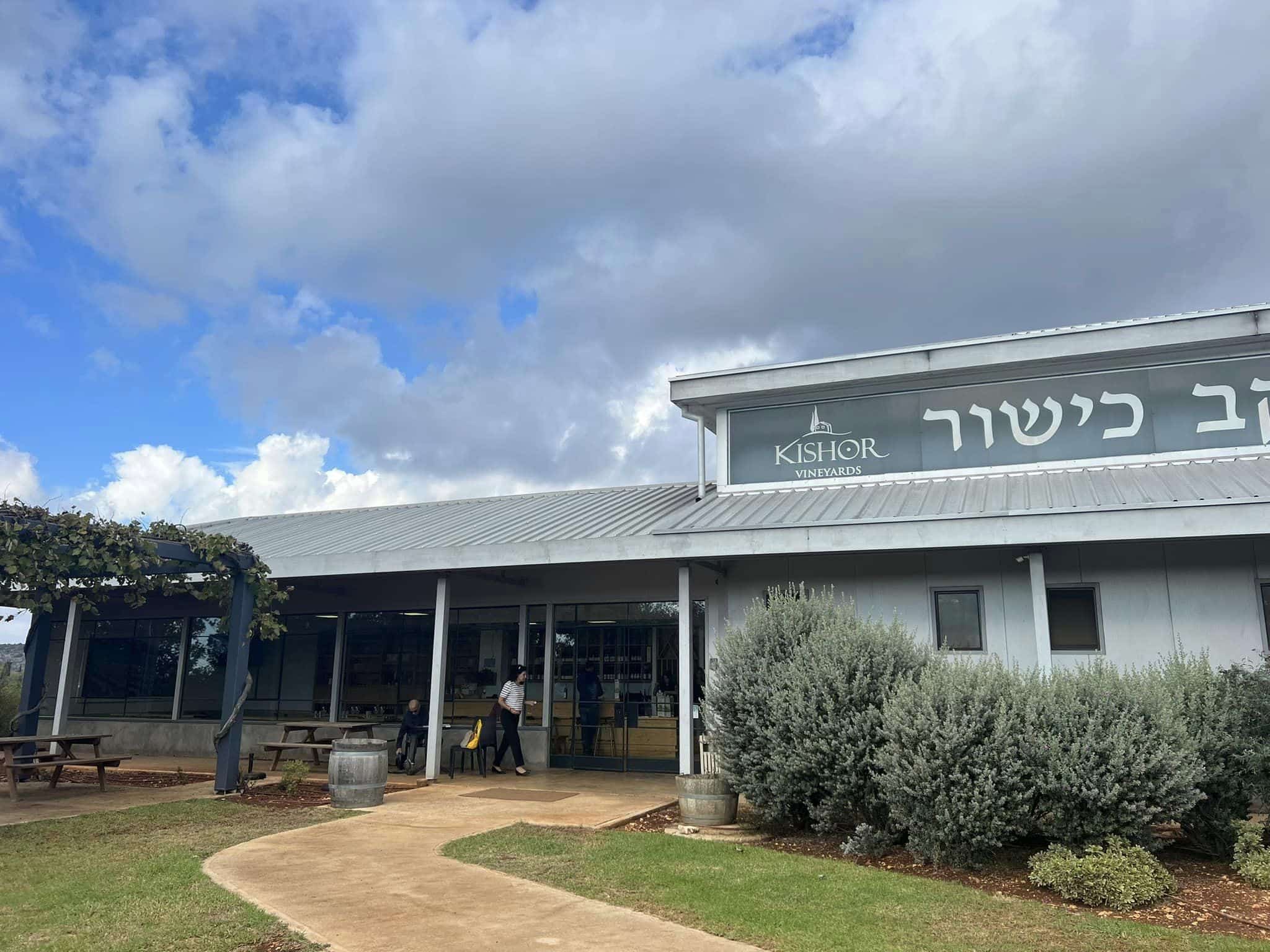
PRO TIP: Use this tourist map of Judea Wineries to help you plan your outing or click here to learn about the many wineries in western Galilee.
Visit Distilleries to Sip Inventive Spirits
The first craft distillery in Israel lies on the border of Lebanon with a “visitor center” aka hipster-ish tasting room bar lounge and a relaxing outdoor garden setting where you can drink a wide variety of the alcohol produced.
Run by 6 people, Jullius Craft Distillery was established in 2008 by “Joov” Har Gil, a media man and former restaurant critic who left the city during the pandemic to start his dream – producing the finest spirits in Israel, made from locally grown ingredients using craft solar energy distilling methods. Jullius begins with distilling local fruit known in the world as “schnapps” and from a variety of grapes known as “eau de vie.”
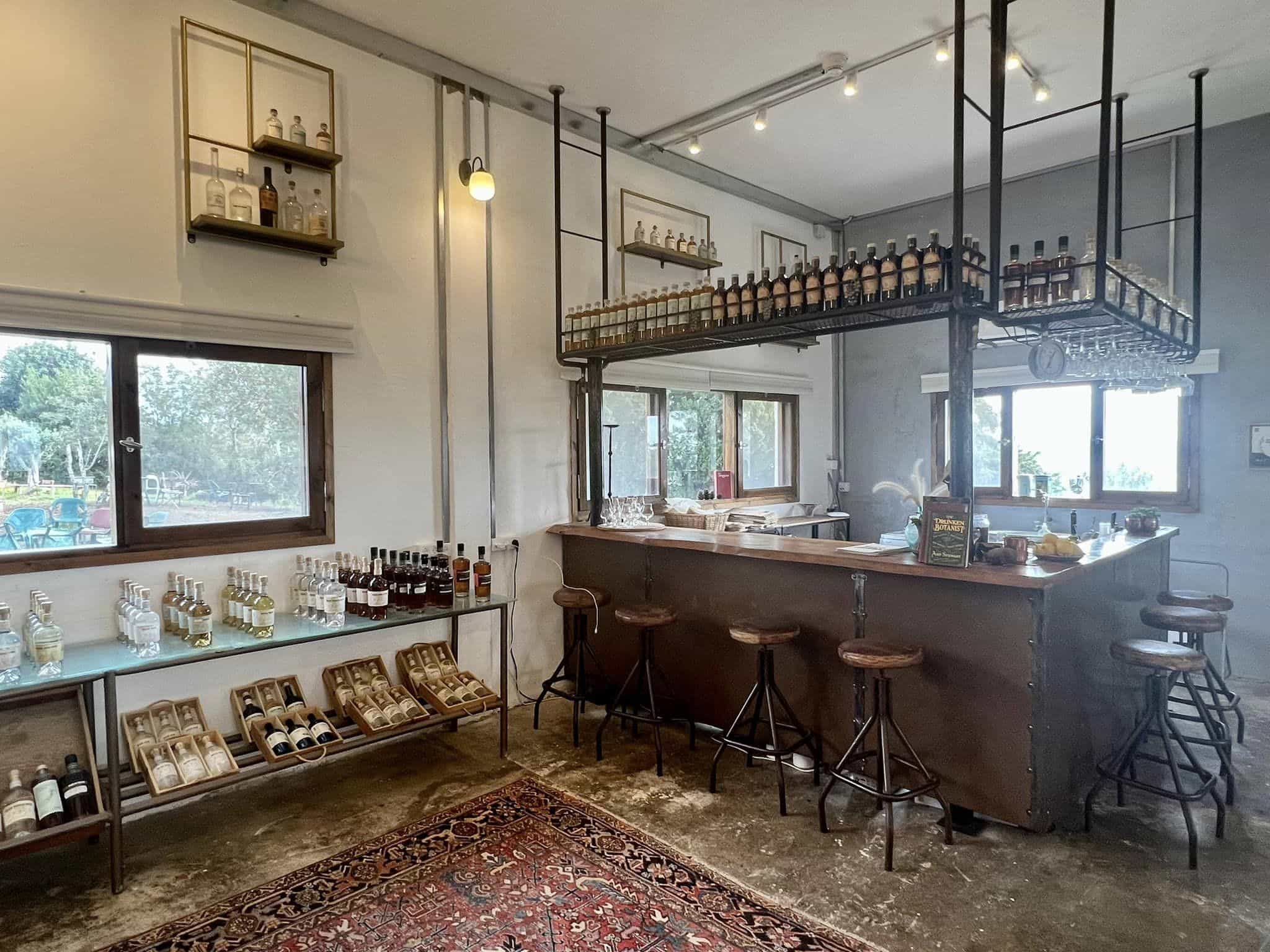
Jullius created the first grappa in Israel but in Israel, it is called Marc de Galilee (since it is not Italy) and resembles whiskey. A plethora of sensational sips can be discovered here such as Jullius’s Meade (dry honey wine), strawberry Eau de Vie (made from strawberries, water, and yeast) like a brandy, vermouth, and a gin made from juniper with 12 botanicals decked in an Alice in Wonderland label.
“Gin,” Joov said, “is the only thing they have a recipe for. Using fruit and not grains helps us be kosher.” Since every bottle is a new creation, all bottles are numbered and cataloged.
It doesn’t stop there as Julius is a pioneer in refining honey, gin, and brewing bitter digestifs. His goal is to let nature speak and not try to manipulate anything with the process, to produce clean alcohol without additives, all in harmonious integration with the environment.
Thinkers Distillery is another distillery making waves and wanting to be synonymous with Israel as they make gins, vodka, and bourbon in beautifully designed bottles that could be reused as an artsy vase complete with sayings like ‘He who is wise learns from another person.” Located in Jerusalem just a 4-minute walk from Mahane Yehuda Market, visitors can book an hourlong tour to learn how Thinkers makes spirits, sip products, and savor a cocktail creation. Thinkers Furthered is engraved on each bottle “because they took it further.” Try Thinkers New World Gin called Israeli Sunset distilled with rose petals and red fruit.
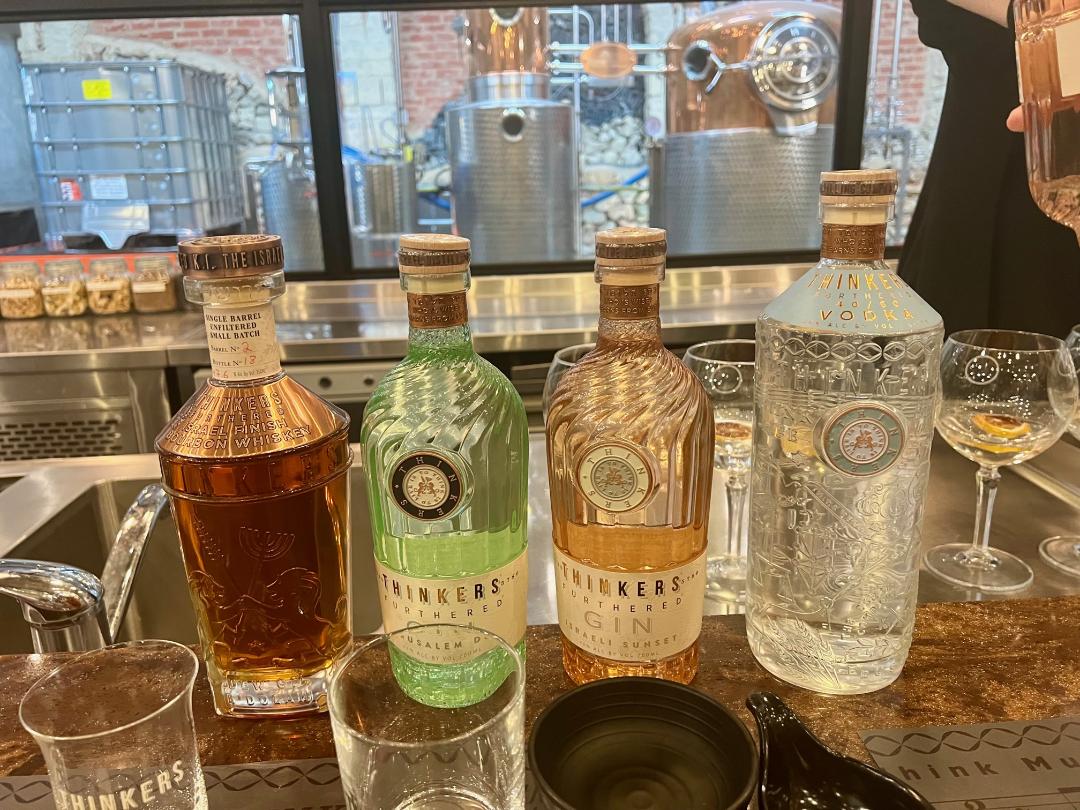
PRO TIP: Visits are by appointment only at both locations. Book in advance – Jullius Distillery and Thinkers Distillery.
Meet the local growers of Upper Galilee
In Upper Galilee (above the Sea of Galilee), there is a slew of growers and makers using the land and the best local ingredients to create products.
On the road leading to Peki’in in Moshav Hosen, Shmulik Iluz overcomes the weather odds to grow Moroccan argan trees in Galilee. After several attempts over many years, he finally was able to get the seeds to survive the winter. As trees produce nuts twice a year, the Moroccon-style center dubbed Argan in the Galilee invites guests to tour, take an argan oil soap-making workshop, sample argan olive oil, and more. Book in advance.
Buza Ice-Cream dishes up more than 80 flavors handmade daily according to season or demand and created with flavors like salted caramel, roasted coconut and cashew, Arabic coffee, peanut butter, and mascarpone with cherries. Adam Ziv from Kibbutz Sassa worked in ice cream parlors around the world and met restaurant owner Alaa Sweitat, forging a partnership. Honored by the UN for building a bridge between the Jewish and Arabic worlds and making the world a better place, Arabic and Jewish work together here to create the freshest ice cream.
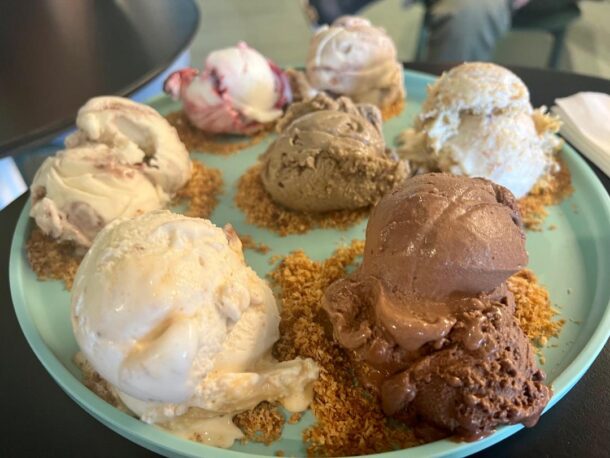
At La Chocolita, 28-year-old Ward Mohana, a former musician and software engineer, decided to switch gears and pursue his passion for chocolate. La Chocolita, a successful factory plus coffee and chocolate café was born after Mohana learned from a Belgian chef in Istanbul and returned to his village Pki’in. Find artful-looking pralines, truffles, and chocolate bites and an outdoor garden setting to unwind while your experience might include the owner’s dad playing one of his many makeshift flutes. Book a chocolate-making workshop in advance.
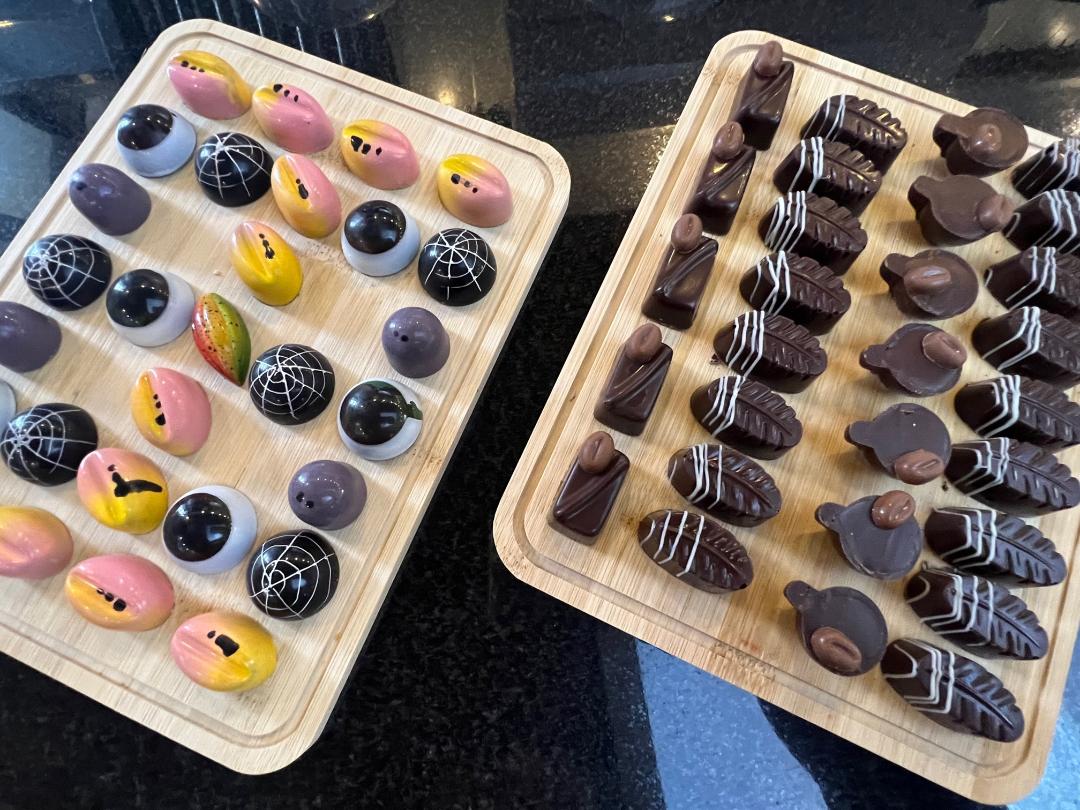
Honey lovers will want to stop at Asal Alnor in the village of Pki’in to meet beekeeper Ghassan Saleh and learn about the world of bees. Sample and take home unadulterated honey from various plants like avocado or peruse a wide variety of products like nutritious bitter honey, chocolate filled with honey, honeycomb, bee pollen, and more. Call in advance 972 72 3957616 or find him on Facebook at Asalalnor.
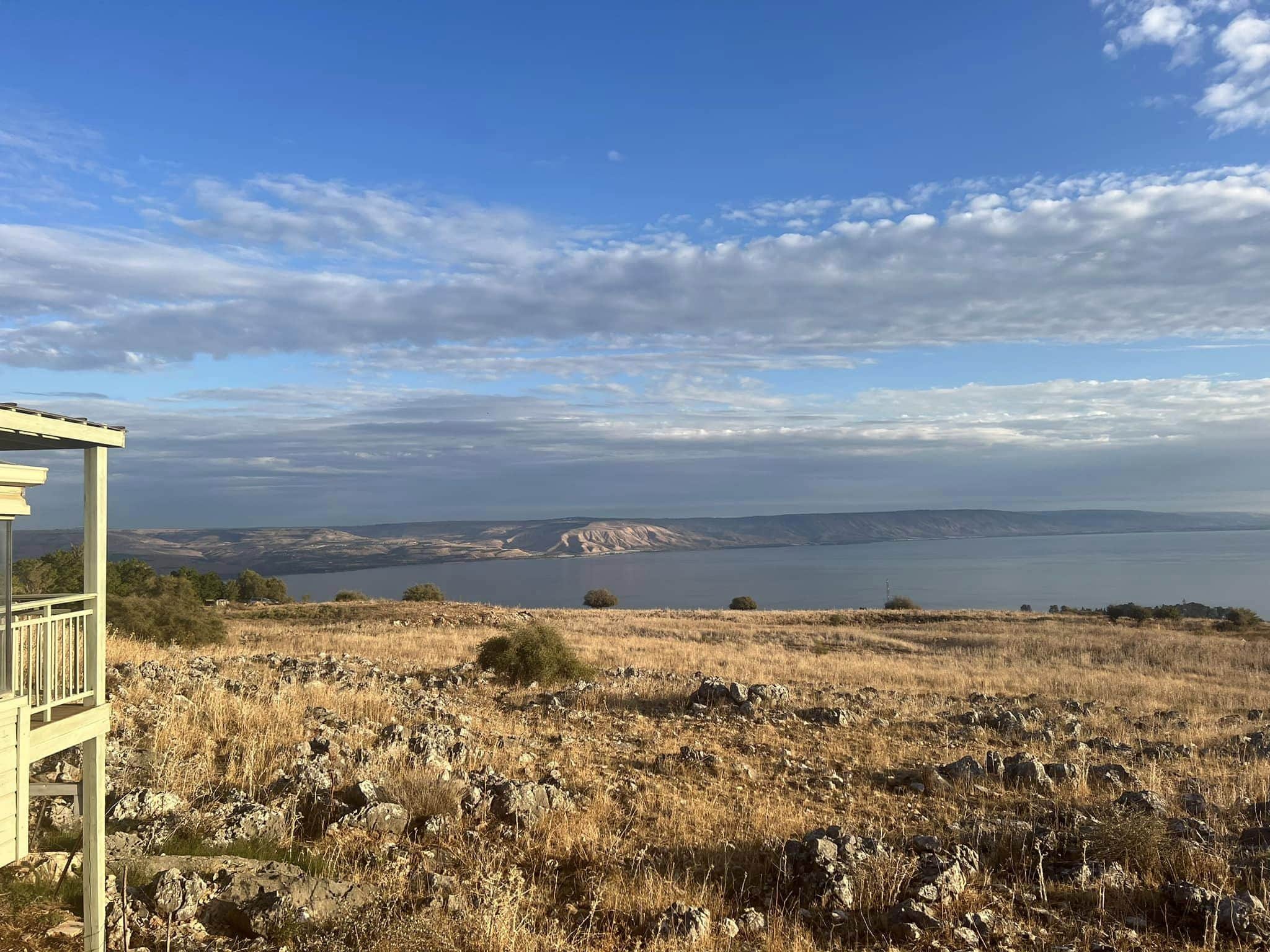
PRO TIP: Stay on the Sea of Galilee in a cabin at Vered Hagalil Guest Farm to access the local growers in the region. Besides the stunning lake views and horse ranch, another benefit of staying here is the breakfast where you can sample local produce and dishes like shakshouka.
Indulge in goat milk products from Alto Dairy Café
This coffee, dairy, bakery, and boutique shop in Kibbutz Shomrat begin with a family love story of cheesemaking made from fine Galilean goat milk using traditional methods. Pass an orchard of fruit trees to sit outside or eat under a covered terrace overlooking the landscape after ordering at the self-service café and deli.
Come for breakfast, a cheese platter, sourdough sandwiches, croissants, quiches, toasts, desserts, and their famous goat yogurt ice cream served with a variety of toppings. Savor Alto’s butter, cream, labneh, pesto jam, blue cheese, cheddar with truffle, and brie with nuts served with pasta chips – all cheeses made from goat milk.
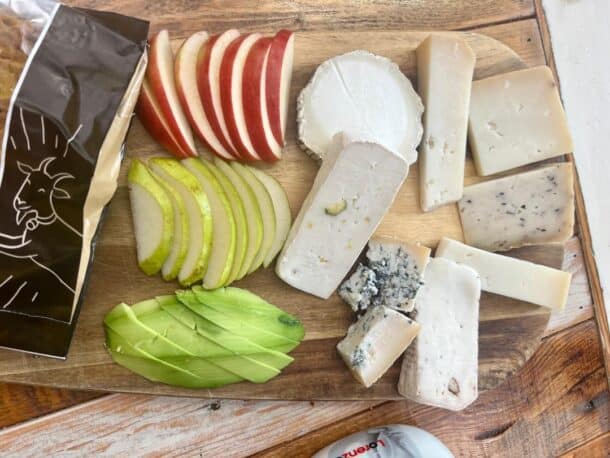
PRO TIP: Order the knafeh that looks like a bird’s nest as it arrives with peanuts and cream on top.
Stroll Jerusalem’s Machane Yehuda Market
This shuk or bustling marketplace represents the heart of Jerusalem, integrating the old and the new. The descendants of the original owners still operate many stalls. Stroll the streets (and the Iraqi and Georgian market sections) with over 250 vendors to discover interesting produce, food, drinks, bars, restaurants, and shopping. Nuts, coffee, giant loofahs, gourmet cheeses, every flavor of halva, falafel, spices, pastries, and juicy dates caught our attention in this chaotic bazaar.
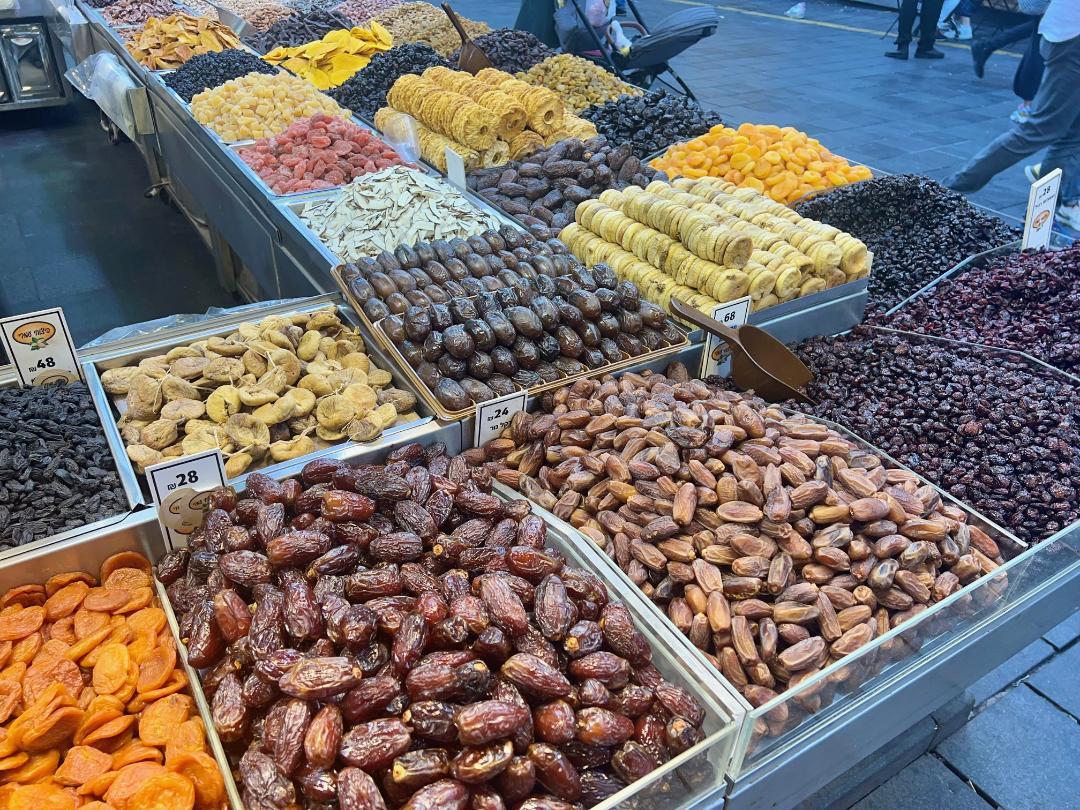
PRO TIP: Take a tour of the market or even a chef-guided tour. Go early if you want quiet and go for fun nightlife on Thursdays when everyone under the age of 40 descends upon the area as fruit and vegetable markets are replaced with bars and pop-up restaurants.
KEEP READING:
–12 Things to Know Before You Travel to Europe
–12 Things You Never Knew About Italy
–7 Things to Do in Naples, Italy
–12 Things to Know Before Going to Paris
–19 of the Best Off-the-Beaten Path Things to See and Do in Paris
Want more travel news, tips and deals? Sign up here for Johnny Jet’s Daily Travel Tip newsletter! Just fill in your email address and check the Daily Travel Tip box—and you’ll have Johnny’s best tips, straight to your inbox each day!



